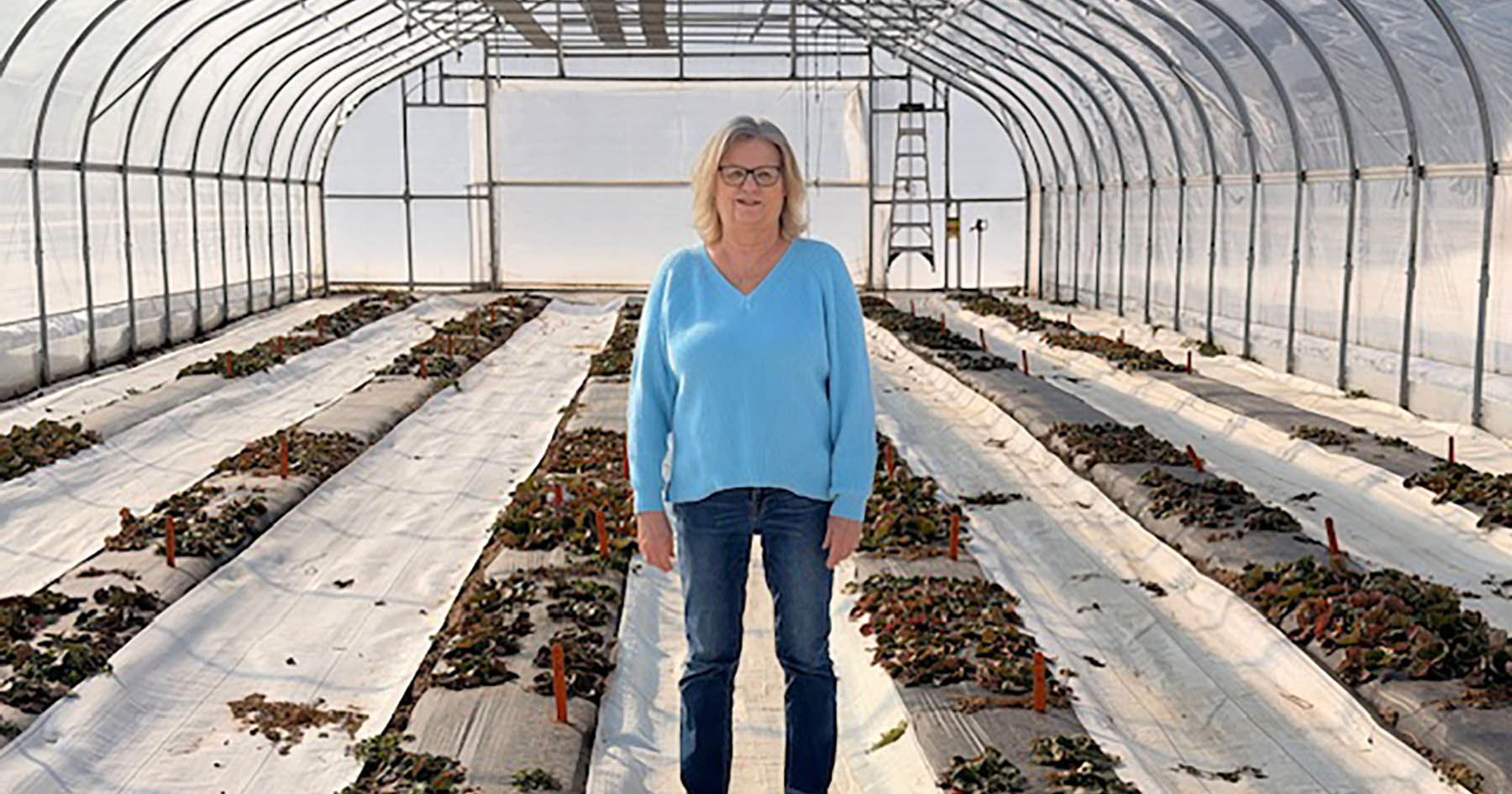Graduate Student Spotlight: Alyssa Smith
Alyssa Smith is a master's student and alumna of the Purdue Animal Sciences Department. Her research is focused on reproductive physiology, and her advisor is Alex Pasternak, PhD.
“My graduate research uses pigs as a biomedical model for fetal development and endocrinology to examine how conditions that may occur during gestation, such as fetal hypothyroidism, impact subsequent growth and physiology of the fetus,” Smith said. “In addition, I am also investigating the impacts of intrauterine growth restriction on the endocrinology and performance of piglets, which is an issue that is important to the swine industry. In the past year, my experience as a graduate research assistant has opened up many opportunities to network and learn new skills, as well as improved my ability to communicate science to a diverse audience.”
Smith also received her bachelor’s degree from the department.
“I received my bachelor’s degree in August of 2023 and started graduate school immediately after,” Smith explained. “I chose to stay with the department because of the positive experiences and opportunities I had here as an undergraduate, as I am currently studying under Dr. Pasternak, a professor in the department whom I worked for as an undergraduate researcher.”
As an undergraduate student, Smith was a College of Agriculture Dean’s Scholar, a member of the Farrowing Club, and worked as a teaching assistant for the undergraduate physiology course, ANSC 23000, under Ryan Cabot, PhD. However, most of her time was spent conducting undergraduate research. She did some research in the Purdue College of Veterinary Medicine and then spent two summers in Pasternak’s lab as part of the Purdue Summer Stay Scholars Program and Summer College of Agriculture Research Fellowship (SCARF). She also conducted an independent research project under Pasternak’s guidance during the academic year.
Smith credits her graduate school career to her undergraduate research experiences.
“While I initially had plans to go to veterinary school, my experiences in undergraduate research led me to change career trajectories and pursue graduate school instead, as I found that I really enjoyed all aspects of research and the challenges associated with it,” Smith explained.
Smith chose to enroll in Purdue’s animal sciences program because of her passion for animals.
“I chose to study animal sciences because I have always had a passion for working with animals and an interest in physiology,” Smith said. “While I did not grow up around agriculture, I chose to attend Purdue because they have a strong and respected undergraduate program in animal sciences with many opportunities to gain experience working with a variety of agricultural species. I felt like the curriculum would give me a well-rounded background that would allow me to succeed in further studies.”
After Smith receives her master’s degree, she wants to pursue a doctoral degree with her ultimate goal of landing a career in academia.
“I feel as if my time so far as a graduate student in the department has adequately prepared me for future studies by giving me the skills needed to effectively manage many tasks, including graduate courses, teaching and mentoring students and performing independent research,” Smith said.
Smith also mentioned that the animal sciences graduate program has many strengths.
“The Purdue Animal Sciences graduate program consists of a very diverse array of students and faculty that complete research in many different areas of animal sciences,” Smith mentioned. “I believe that this gives students a broad understanding of research and enables them to gain a diverse knowledge base and skill set.”
According to Smith, her biggest accomplishment as a Purdue student has been acquiring new skills.
“My greatest accomplishment while being here at Purdue has been learning new skills, both in the lab and on the farm, and being able to pass these skills onto others through mentoring numerous undergraduate students in the Pasternak lab,” Smith explained.
Smith shared some guidance for incoming graduate students.
“I would advise an incoming graduate student to be open to doing and learning new things and to take every opportunity available to expand your skill set in order to make yourself as versatile as possible,” Smith said.





